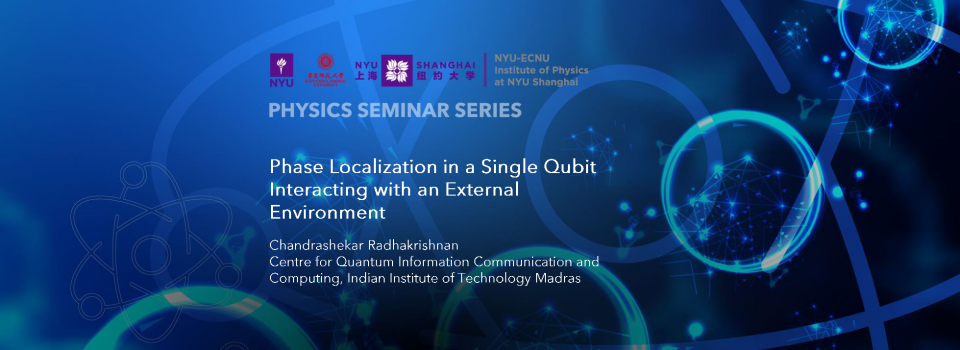
Abstract:
An open quantum system with a two-level system interacting with an external environment exhibits phase preference in the long-time limit. This behavior is present only when the evolution is non-Markovian and there is a finite detuning present between the system frequency and the central frequency of the bath spectrum. This phase localization is due to the information backflow into the system due to the non-Markovianity. This phenomenon exhibits some similarities with quantum synchronization studied using Husimi Q-function. In this talk, I will discuss these similarities through a description of Arnold tongue. I will also focus on what are the challenges remaining to be addressed on whether the observed phase localization is synchronization. Finally, what are the possible applications of these devices in the current day quantum computing devices will also be discussed.
Biography:
Chandrashekar Radhakrishnan is working as Principal Project Scientist at the Centre for Quantum Information Communication and Computing (CQuICC). Previously, he worked as Associate Professor at the Ecole d’ Ingenieurs du monde numerique (ESIEA), in Paris and as a Postdoctoral Fellow at the New York University Shanghai for a period of 5 years, National Chung Hsing University in Taiwan and IMSc in Chennai. His research interests are on the topics of quantum information theory, mathematical physics and statistical physics.
Seminar by the NYU-ECNU Institute of Physics at NYU Shanghai


